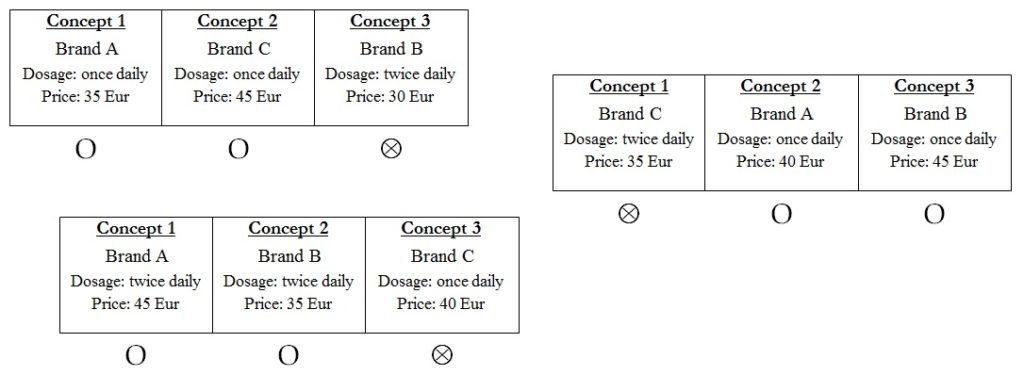A Choice-Based Conjoint (CBC) model consists in exposing respondents to a number of scenarios (tasks), each characterized by a set of products profiles (usually 3 to 5) described in terms of the same attributes. Respondents are asked to choose the most preferred product profile from the set (and, potentially, the second / third most preferred).

In a typical CBC task, the option ‘none of these‘ is also included because customers in the real world are not required to choose products that are not happy with. The utility associated with this option captures the extent to which none of the presented products are selected by the respondent as opposed to one of the products being chosen.

In a CBC exercise it is also possible to include one of more fixed products. Fixed products are products whose definitions do not vary across the CBC tasks. These are typically competitive products that cannot be easily defined through the attributes and levels included in the design; moreover, their characteristics/profiles are well defined/known, so they can be considered as static options in the CBC study.

The function cbc.logit available in R-sw Conjoint allows running aggregate-level traditional logit estimation of choice-based conjoint data, while cbc.HB.logit performs an individual-level hierarchical Bayes (HB) logit estimation. Data can easily be prepared for estimation by text2list or cho2list.
